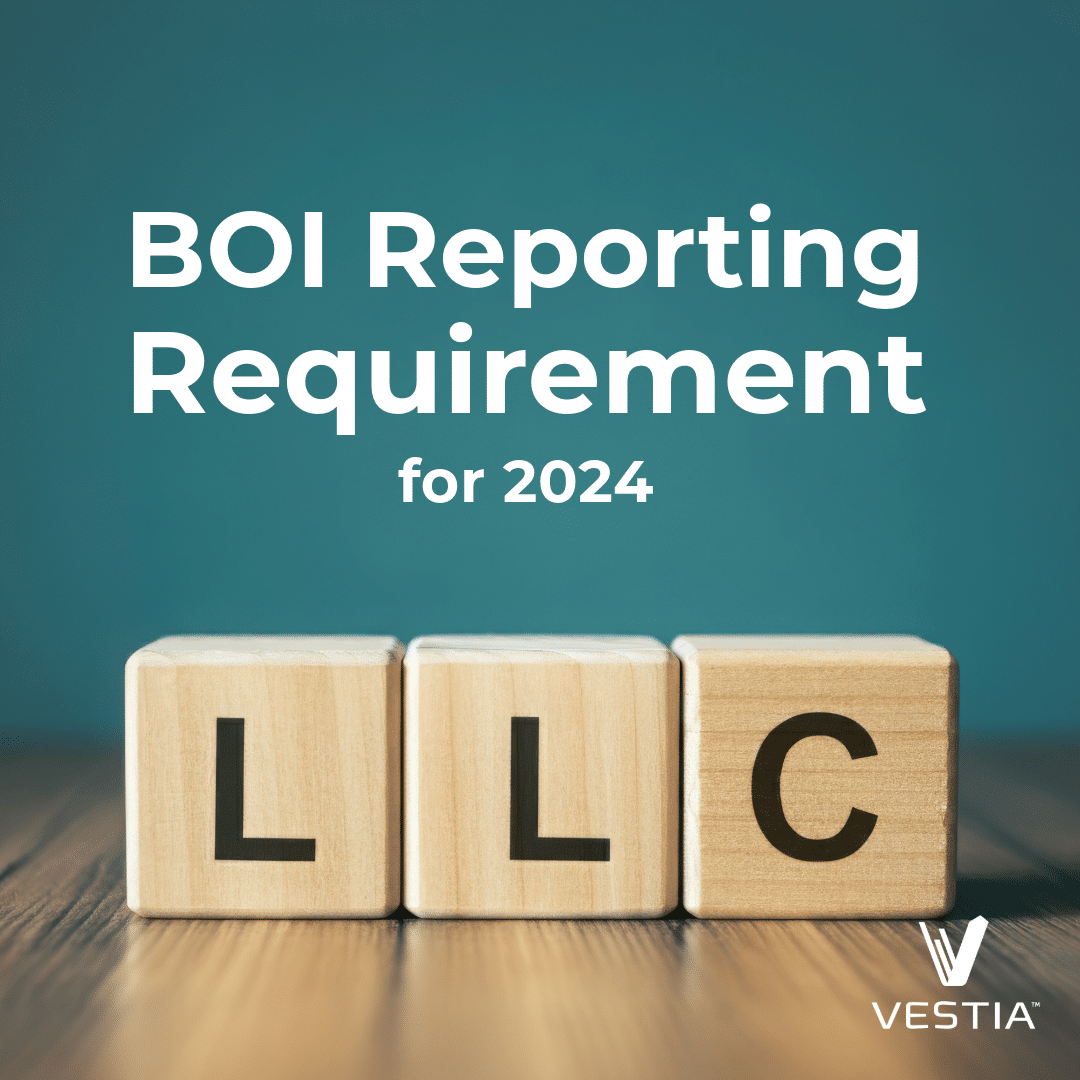President Biden’s vision for revitalizing the country has been met with a flurry of news headlines.
Phase 1, the American Rescue Plan, was signed into law this past March. The $1.9 trillion plan came with direct payments, a boost to unemployment benefits, an expansion of popular tax credits like the child tax credit, among other initiatives.
Phase 2 and 3, the American Jobs Plan and the American Families Plan, have been announced and proposed (not signed into law) but would come with more long-term consequences for high-earners: a suggested tax bump.
After the election, we anticipated tax changes would pop up on the horizon. But these are merely proposals as the president can’t make these changes unilaterally. The proposals need to go through Congress and will likely see several edits and concessions before signed into law.
At Vestia, we’re proactively monitoring updates to Biden’s proposals and actively preparing for potential strategies for our clients. While it’s likely physician taxes will increase, there are several planning opportunities available that we have our eyes on to help mitigate some of the impacts.
- What are the President’s new proposals?
- How could they affect your taxes?
- In what ways can your advisor help you prepare?
Let’s dive in.
What Doctors Should Know About the American Jobs Plan
The roughly $2.7 trillion plan boasts hefty public infrastructure updates (roads, bridges, railway, airports, electric vehicles), clean energy initiatives, research and development, affordable housing, workforce development, supply chain, and upgrading public schools.
The big question remains: how will the government pay for it?
The administration is confident that the initiative could be fully paid for by making strategic tax changes like increasing corporate taxes, placing energy into corporate tax enforcement, along with various tax increases on foreign income.
How could this plan affect physicians?
Proposed Raise on Corporate Tax
Currently, corporations are taxed at 21%. The American Jobs Plan seeks to increase that tax to 28%. While that number sits far below the 35% tax in previous years, the proposed increase is still higher than present circumstances.
Raising corporate tax could impact private practice owners, making it important to monitor. This increase could be a good time to evaluate how your business is taxed and what tax structure makes the most sense for you, your business, and your employees.
What Doctors Should Know About the American Families Plan
Phase 3 of the President’s Build Back Better plan focuses on families and education. Its primary goal is to provide a more equitable long-term recovery for the country. The $1.8 trillion plan is proposed to have $1 trillion in spending and $800 billion in tax cuts for moderate to lower-earning families.
The plan seeks to make childcare and college more affordable, create a federal paid family and medical leave, retain the child tax credit, make the enhanced earned income tax credit permanent, and fine-tune the Affordable Care Act subsidy.
The ambitious spending plan is currently slated to be paid for by several tax increases to wealthy Americans. Coupled with the tax hikes in the American Jobs Plan, the administration anticipates that they will cover the costs of their spending within 15 years.
What tax increases are proposed? Let’s take a look (some of these will sound familiar to you).
Increase Income Taxes
The top income tax rate is projected to increase to 39.6% for anyone making over $400,000. There is still a glaring unknown in this proposal—will the increase apply to all taxpayers regardless of filing status (single, married filing jointly (MFJ), etc.)?
A recent report from Axios disclosed information from an anonymous White House Official who commented that the 39.6% would impact single filers with taxable income over $452,700 and married couples filing jointly with income over $509,300. If this is the case, we expect most physician households will be impacted.
This information hasn’t been publicly confirmed, but it does bring some perspective to the thought process in Washington D.C. It also brings to light the fact that married couples each making less than $400,000 could be subject to the tax hike.
Boost Capital Gains Tax
The American Families Plan also proposed an increase to capital gains tax for doctors making over $1 million. As it stands, the long-term capital gains rates (assets held at least a year) are 0%, 15%, or 20%. Short-term capital gains (assets held less than a year) are taxed as ordinary income. Maximizing long-term capital gains has been a pivotal tax planning strategy for wealthy Americans.
But Biden would like to increase the long-term capital gains rate to the top income tax rate of 39.6% for those making over $1 million, effectively eliminating the incentive for high-earning investors, which includes many physicians, to hang onto their securities long-term. Tack on the 3.8% net investment income tax (Medicare surcharge for high-earners), and millionaires could be looking at a 43.4% tax rate on capital assets. This tax increase is also likely to affect qualified dividends.
For physician practice owners looking to retire and receive a buy-out or looking to sell their practices, if your total income for the year is over the $1 million thresholds (including the sale proceeds), you could very well be paying income tax on those sales proceeds.
Eliminate the “Step-up in basis” for Property
Presently, inheriting a capital asset like stock or real estate would afford a special tax treatment that “steps up” the income tax basis to the asset’s fair market value on the date that the previous owner passed away. This provided heirs a more tax-friendly environment for selling an inherited asset.
Let’s look at a quick example. Say you inherited your grandfather’s lake house. When he built the house, it was worth $250,000, but its prime location led to a massive appreciation over 20 years and it’s now worth $750,000. You sold the property for $800,000. Thanks to the “step-up” basis, your tax basis started at $750,000, so you’re only responsible for $50,000 in capital gains. Without it, you’d be looking at $550,000 in capital gains.
While details on this proposal are still hazy, the President would work to eliminate the “step-up in basis” for gains of over $1 million ($2 million MFJ). There would be exceptions for family-owned businesses and assets donated to charity. This would likely be a difficult provision to un-do, but it could change the way you structure your estate plan and/or handle inheritances.
Close the Carried Interest Strategy
The carried interest loophole allowed hedge fund managers to treat earned income as a long-term capital gain. The President would like to see that loophole closed and tax the earned income at ordinary income rates.
Remove the “Like-Kind” Exchanges
This proposed change would impact real estate investors. If you sell property as an investment and then buy another investment property that’s the same type, you often don’t have to report the gain or loss on your taxes under the “like-kind” rule.
The plan would eliminate this rule for gains in excess of $500,000.
Expand 3.8% Medicare Tax
Medicare tax is only imposed on a certain amount of your income. Biden would look to increase the 3.8% tax on all income over $400,000.
5 Tax Planning Strategies We Suggest Doctors Consider
All of these proposed tax changes may seem overwhelming, but remember that these plans are not law, they are simply proposals. The president doesn’t make tax laws and there are likely several steps before major tax changes would take effect.
It’s also critical to mention that none of the following should be construed as tax advice. While a tax plan is essential to your overall financial picture, you should always consult with your tax professional before implementing any changes to your plan.
Our advisors are staying on top of these proposed changes and brainstorming planning opportunities to help keep your money working for you.
Maximize Roth Accounts and Conversions
We want to help you make the most of every dollar and maximizing your Roth accounts is one way to do that.
One strategy to consider is to convert some pre-tax dollars into Roth dollars before tax rates jump. While you will have to pay taxes on the conversion, you could see a more favorable tax climate in the long run.
Another tool for young physicians, in particular, is to invest in a Roth 401(k). In the past, Biden has proposed to swap deductible 401(k) contributions for a refundable tax credit. This switch would likely be less tax-friendly. Since no changes have currently been proposed to Roth accounts, employing this resource is an option to grow tax-free dollars.
Manage Capital Gains
Physicians earning over 1 million dollars will need to be careful about limiting their capital gains. One way to do that is by prioritizing tax-efficient investing. Tax-efficient investing is an important element of our strategy, but should any of these tax plans pass, we could double down on tax efficiency in several ways.
- Regular tax-loss harvesting
- Increased use of tax-free municipal bonds
- Avoiding dividend-producing investments in taxable accounts and other tax location strategies
- Employ some annuity vehicles to move after-tax funds into a tax-deferred “wrapper”
Make the Most of Gift Tax Exclusions and Estate Planning Tools
With the proposed elimination of the step-up basis and the sunset of the federal estate tax exemption in 2025, estate planning will likely become a top priority. Wealthy families could consider the following:
- Give more money away while alive
- Strategically move some of your assets into appropriate trusts
Charitably inclined physicians that find themselves in a higher tax bracket could also look into advanced donor-advised funding (DAF) strategies. Under the right circumstances, we may be able to help you take advantage of a full deduction without a cap.
Remember your HSA
Making the most of tax-free distributions is a great option for a high-tax environment. An HSA is another tax-advantaged account to help with efficient investing for health care costs.
Save for Education
Many physician families have a goal to save for their children’s education. Opening and funding a 529 can be a good addition to your tax-efficient investing journey. In a higher tax rate environment with limited deductions, it will become more valuable to consider vehicles with a tax-free distribution component to help avoid high taxes on withdrawals.
Vestia is On Your Side
At Vestia, we’re tuned in to the issues that could impact your finances. We love serving physicians and will walk with you through any changes that occur throughout your career and beyond.
We will continue to monitor the state of these plans and will provide you with updates as we have them. Do you have any questions about the tax efficiency of your financial plan? Let’s talk about it together.
Investment advisory services offered through Vestia Personal Wealth Advisors, Vestia Retirement Plan Consultants, and Vestia Advisors, LLC. Securities offered through Ausdal Financial Partners, Inc., 5187 Utica Ridge Rd, Davenport, IA. 52807 (563)326-2064. Member FINRA/SIPC. Vestia Personal Wealth Advisors, Vestia Retirement Plan Consultants, Vestia Advisors, LLC, and Ausdal Financial Partners, Inc. are independently owned and operated.
This material is intended for informational purposes only. It should not be construed as legal or tax advice and is not intended to replace the advice of a qualified attorney or tax advisor. This information is not an offer or a solicitation to buy or sell securities. The information contained may have been compiled from third-party sources and is believed to be reliable.



